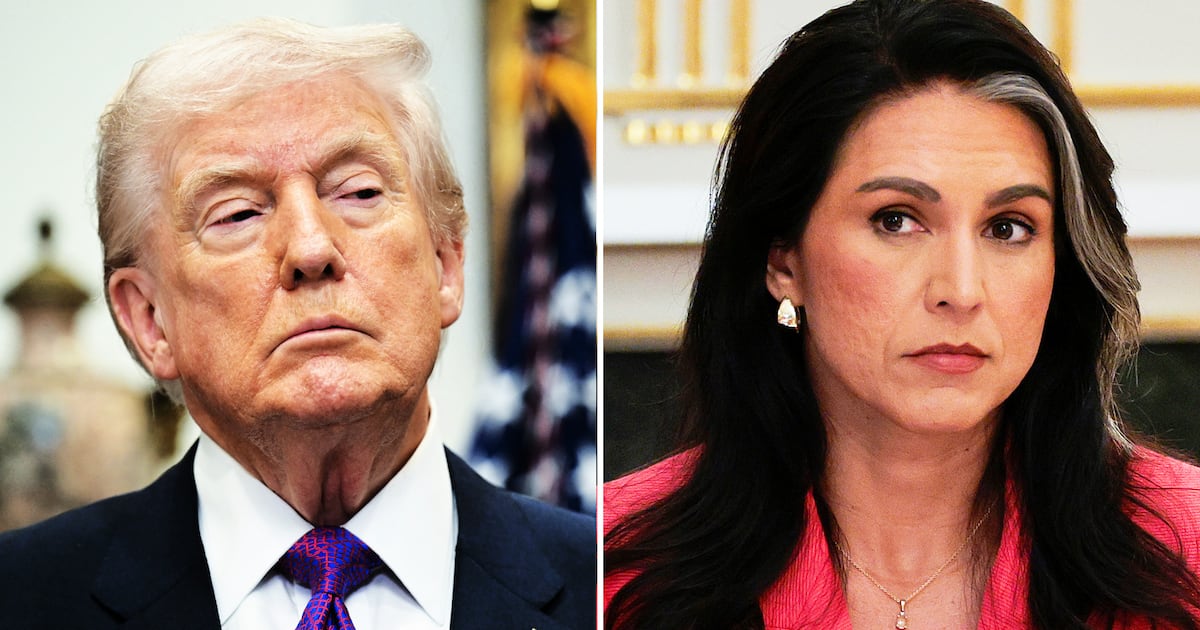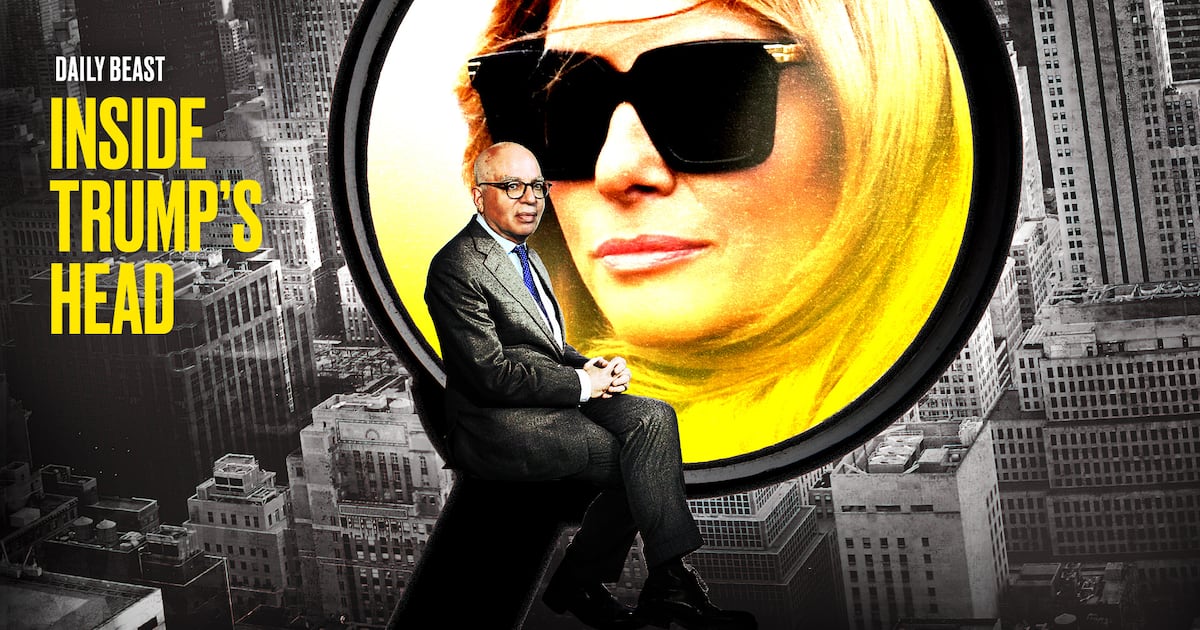Carl Wardman is no jury-tainting bully—says Carl Wardman.
The Manitowoc County sheriff’s volunteer served on the jury that convicted Steven Avery of the murder of Teresa Halbach in 2007. But Wardman told The Daily Beast he didn’t observe vote-trading or other shenanigans rumored to have swayed jurors.
“Nobody got bullied,” Wardman said.
Wardman is likely the mystery man at the center of Avery’s latest motion for release, revealed Tuesday in filings to the Wisconsin Court of Appeals.
Avery focuses on one juror in the court documents, identified only as “C.W.” He claims C.W. intimidated fellow jurors and contributed to the violation of Avery’s right to due process, WBAY reported.
“Juror C.W. made repeated remarks that Avery was FUCKING GUILTY,” Avery wrote in a petition signed January 7—just one day before Chicago lawyer Kathleen Zellner announced she would represent him.
The document likely refers to Wardman, who OnMilwaukee.com revealed had served as a juror while also remaining one of the sheriff’s department’s most active volunteers, even tooling around in a squad car.
When reached by phone Tuesday night, Wardman told The Daily Beast, “I never said nothing like that” regarding Avery’s claims.
Wardman’s son, Chris, worked as a Manitowoc County jail supervisor during the trial as well, reported OnMilwaukee.com.
At jury selection, Wardman disclosed his volunteer work and his son’s job, but prosecutors and Avery’s attorneys declined to strike him. This was likely—at least on Avery’s side—because Wardman seemed open to the possibility of police planting evidence.
Wardman told The Daily Beast that the court was aware of his involvement with the sheriff’s department but, “They picked me, they knew it.”
Still, Avery’s most recent petition—received January 11 by the state court of appeals—suggests “C.W.” tainted the jury pool.
C.W. allegedly warned jurors, “If you can’t handle it, why don’t you tell them and just leave,” according to Avery’s court papers.
Avery further claimed C.W. had “preconceived guilt of Avery” and made statements indicating as much in the jury room, restaurant, and motel—depriving Avery of a fair trial.
Dean Strang, one-half of Avery’s now-famous legal duo, told The Daily Beast he was concerned about the juror revealed to be the father of a Manitowoc County sheriff’s deputy. But Strang and fellow attorney Jerry Buting were far more worried about six other potential jurors on which they exhausted their maximum strikes.
“You don’t pick a jury. All you can do is unpick the people you think are least fit to serve on the jury,” Strang said last week. “But the concerns about six other potential jurors were greater.”
Avery, 53, whose story is detailed in Making a Murderer, is serving life behind bars without the possibility of parole for the 2005 Halloween night murder of photographer Teresa Halbach at his family’s auto salvage yard in Manitowoc, Wisconsin.
Avery had previously served 18 years in prison for rape until he was exonerated by DNA evidence. Once released, he filed a $36 million lawsuit against the Manitowoc County sheriff’s department.
But in 2007, Avery would return to prison again—this time convicted in Halbach’s slaying, for which he claims to be innocent.
The viral documentary explores Avery’s accusations of being framed by police and the Manitowoc County Sheriff’s Office planting evidence against him.
He’s filed multiple appeals over the years, but the documentary catapulted his plight into the national spotlight. It’s unclear why Avery filed his latest appeal, apparently without the help of his new attorney.
“I’ve lived it [the trial], and that’s it,” Wardman said before hanging up.
A representative of Zellner’s law firm told WBAY that Zellner met with Avery on Monday, but the attorney didn’t file the Jan. 11 motions, which will be heard by the court Feb. 11.
Avery signed his court papers just days after Moira Demos and Laura Ricciardi, the two filmmakers behind the Netflix docuseries Making a Murderer, dropped a bombshell on the Today show alleging a juror contacted them to discuss secret vote-trading and votes made under duress.

That juror believed Avery was framed by law enforcement but never spoke up for fear of retribution, according to the directing duo.
“[The juror] told us that they believe Steven Avery was not proven guilty,” Ricciardi said. “They believe Steven was framed by law enforcement and that he deserves a new trial, and if he receives a new trial, in their opinion it should take place far away from Wisconsin.”
The juror said the deliberations included behind-the-scenes vote-trading and that the verdicts on each count were “a compromise.” (Wardman told The Daily Beast that vote-trading “never happened.”)
At trial, jurors were allegedly saying, “If you vote guilty on this count, I will vote not guilty on this count,” Ricciardi said.
Indeed, Avery’s defense team hinted at possible jury room intrigue in Making a Murderer.
Buting speculated that something fishy might have swayed jurors, who initially voted seven innocent, three guilty, and two undecided.
In the final episode of the series, Buting said newly discovered evidence—in particular, about the jury—could lead to Avery’s freedom.
There could be “other people who know something,” Buting said. “It may be somebody on the jury. It may be somebody who knows something that happened with the jurors.”
“I’ve still got my suspicions about whether something improper occurred during the deliberations,” Buting concluded.
Dismissed juror Richard Mahler seconded that fear, telling People magazine he spent four hours deliberating in the jury room before being excused for a family emergency. He believed Avery was innocent.
Mahler, who was shown supporting the Avery clan in Making a Murderer, is no longer taking media interviews, his wife told The Daily Beast.
But the ex-juror revealed to People last week that two jurors who convicted Avery were related to county employees.
“After the trial, I found out...[one juror] was the father of a Manitowoc County Sheriff's deputy,” Mahler said. “Another juror, his wife works for the Manitowoc County Clerk’s Office.”
“I thought to myself, they shouldn’t have been on the jury. That was a conflict of interest,” he added.
Mahler told People he doesn’t know how the jury reached its decision, but that he thinks about it every day.
“Since the trial ended, I’ve had a hard time sleeping over it because of that feeling of innocence. I keep going over and over it,” Mahler said. “It’s still in the back of my head. What if I would’ve stayed?”






